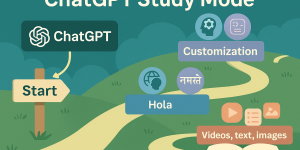Introduction
Humanitarian organizations operate on fundamental principles of neutrality, impartiality, and independence. However, in conflict zones and fragile states, gaining access to affected populations often comes with conditions that challenge these principles. Local authorities, armed groups, or influential community leaders may demand concessions that range from minor cultural adaptations to serious ethical compromises. At what point does negotiating access cross the line into complicity?
The recent Save the Children case in Yemen, where allegations emerged that the organization may have complied with restrictive conditions imposed by the Houthis, highlights the difficult trade-offs humanitarian organizations face. This article explores key ethical dilemmas NGOs encounter when access is conditional and examines how they can navigate these challenges while upholding their core values.
The Ethical Dilemmas of Conditional Access
1. Selective Aid Distribution
In some conflict settings, authorities demand that aid be provided only to certain groups—based on political affiliation, ethnicity, gender, or religion. This undermines the principle of impartiality, which requires aid to be distributed based on need alone.
Example: In Syria, humanitarian organizations have struggled with government-imposed restrictions that favor regime-controlled areas while preventing aid from reaching opposition-held territories. Accepting such terms risks reinforcing inequalities and legitimizing the exclusion of vulnerable populations.
Key Question: Should an NGO provide aid to some people if it means others will be left behind, or should they refuse altogether, potentially increasing suffering?
2. Gender-Based Restrictions on Aid Workers and Beneficiaries
In deeply conservative societies, authorities may insist that only male staff provide aid or that female beneficiaries be accompanied by male guardians. These conditions limit women’s access to aid and contradict commitments to gender equality.
Example: In Afghanistan, the Taliban’s restrictions on female NGO workers forced many organizations to pause operations. Some NGOs found workarounds—such as using local networks of women to distribute aid—while others halted activities entirely, fearing complicity in gender discrimination.
Key Question: Is it better to accept restrictive conditions to continue helping some people, or does this normalize exclusion and discrimination?
3. Funding Tied to Political or Religious Agendas
Some donors—whether governments, private entities, or local power brokers—attach political, ideological, or religious conditions to their funding. Accepting such funds may pressure NGOs to alter their messaging, exclude certain groups, or compromise their neutrality.
Example: In Sudan, humanitarian access in certain areas has at times been contingent on NGOs working through government-approved local partners, some of whom have ties to armed groups. This raises concerns about the independence of aid delivery and the risk of manipulation.
Key Question: How can NGOs maintain financial sustainability while resisting funding that comes with ethically problematic strings attached?
4. Security Risks and the Threat of Retaliation
In some cases, rejecting conditional access can lead to expulsions, arrests, or violence against humanitarian workers. Governments and armed groups may view NGOs as adversaries if they refuse to comply with local demands.
Example: In Yemen, NGOs operating in Houthi-controlled areas have faced demands to hire certain personnel, seek approval for all programming, and comply with restrictive oversight mechanisms. Organizations that resist these conditions risk being shut down—or worse, seeing staff detained.
Key Question: When does prioritizing staff security outweigh the need to take an ethical stand?
How NGOs Can Navigate These Dilemmas
While there are no easy answers, organizations can take strategic steps to minimize ethical compromises while maintaining access:
1.Establish Red Lines Early
- Define non-negotiable principles (e.g., refusing to engage in discriminatory aid distribution).
- Ensure all staff understand when to escalate concerns about ethical compromises.
2.Engage in Negotiation and Advocacy
- Where possible, push back against unreasonable demands while demonstrating respect for local norms.
- Engage donors, UN agencies, and advocacy networks to challenge restrictive conditions collectively.
3. Develop Alternative Aid Delivery Methods
- Work with trusted community networks to bypass restrictive intermediaries.
- Use remote management strategies when security risks prevent direct engagement.
4.Strengthen Coordination Among NGOs
- A united front among humanitarian actors makes it harder for authorities to pressure individual organizations into compliance.
- Joint advocacy efforts can help shift restrictive policies at higher levels.
5.Secure Flexible and Unconditional Funding
- Relying too heavily on government or politically influenced donors can lead to ethical compromises.
- Expanding private sector partnerships and seeking flexible donor agreements can reduce pressure to comply with problematic conditions.
Conclusion
Humanitarian work is full of ethical gray areas, especially in environments where access to communities comes at a cost. While NGOs must remain pragmatic to continue delivering aid, they also have a responsibility to uphold their core values. The challenge is not just whether to operate in these settings, but how to do so in a way that minimizes harm and maintains integrity.
In the face of growing restrictions and conditional access, the humanitarian sector must continue asking hard questions: Where is the line between negotiation and complicity? When does operating under restrictions become a form of legitimization? And most importantly, how can NGOs ensure that the aid they provide does not inadvertently reinforce the very injustices they seek to address?
“Where is the line between negotiation and complicity? “






